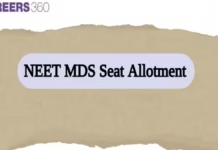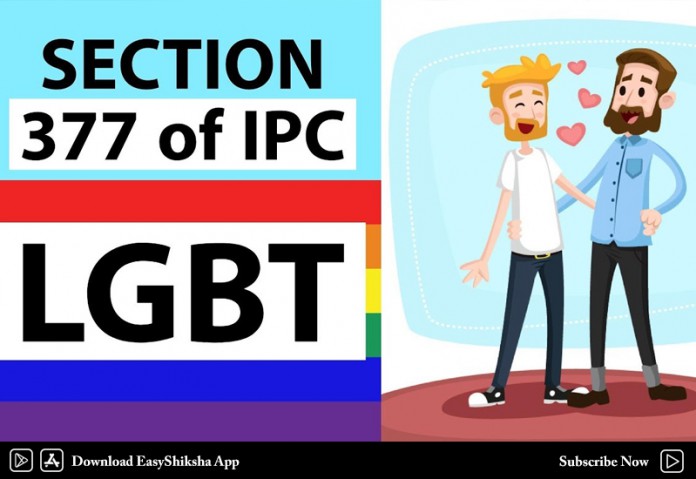In the second half of 2018, the Supreme Court of India, passed a landmark judgment in Navtej Singh Johar v. Union of Indiai, decriminalized homosexuality, thus partially striking down Section 377 of the Indian Penal Code, which made the act of sexual intercourse against the order of nature a crime.
Prior to this judgment, another landmark judgment was passed by the Gujarat High Court, earlier in the same year, Nimeshbhai Bharatbhai Desai v. State of Gujaratii, being convinced by the progressive arguments made by the divorce lawyers in Surat. In that judgment, the wife had filed an F.I.R against the husband, and charged him, among other provisions, under Section 377 of the Indian penal Code, 1860. The ruling is important in that, it did hold the husband guilty.

Important Announcement – EasyShiksha has now started Online Internship Program “Ab India Sikhega Ghar Se”

The judgement of the Apex Court in Navtej Singh Johar, was celebrated throughout the entire nation as a revolutionary ruling in the field of constitutional law. Whereas there has been said and written about how the judgment is going to impact the lives of the LGBTQ community in India, who until then, used to live in closets and in apprehensions of their orientation, there is not enough analysis on the impact this will have on the marriages in India. This blog seeks to analyse some of those aspects in detail.
Section 13 (2) (ii) of the Hindu Marriage Act, 1955 enables a woman to file a divorce against her husband on the ground that he is guilty of having committed sodomy or bestiality, either against her or any third person.
It is important now, that we take a look at the meaning of the two words, ‘sodomy’ and ‘bestiality’. In Anil Kumar Mahsi v. Union of India1, The Supreme Court of India, held as under:
“As regards sodomy, the word is defined in Black’s Law Dictionary (5th Edn.) to mean “a carnal copulation by human beings with each other against nature, or with a beast. Shorter Oxford English Dictionary defines the word ‘sodomy’ to mean “….An unnatural form of sexual intercourse, especially that of one male with another.”
In R. v. D.L.W2, the judge observed as follows:
“The term “bestiality” was understood to mean sodomy or buggery with an animal. Bestiality is a type/kind of sodomy.”
From the judicial interpretations of the two terms, it is clear that they are forms of sexual intercourse which are not convention or usual, (more commonly called as, ‘natural’).
Top Courses in Software Engineering
More Courses With Certification
Section 377 of the Indian Penal Code defines “unnatural offences” as follows:
“Unnatural Offences. – Whoever voluntarily has carnal intercourse against the order of nature with any man, woman or animal, shall be punished with imprisonment for life, or with imprisonment of either description for a term which may extent to ten years, and shall also be liable to fine.”
As was observed in Anil Kumar Mahsi’s case, sodomy may mean, sex between two individuals of the same sex, that is, in essence homosexuality or the kind of sexual intercourse that was previously prohibited under the Indian Penal Code. Post the ruling of the Supreme Court in Navtej Singh Johar’s case, it is clear now that sexual intercourse between two persons of the same sex is no longer a criminal act. Likewise, other relations between and among members of the LGBTQ community are now, no longer criminal offences.
The Madras High Court in its judgment of 2nd Feb, 2016, held that homosexuality could well be a valid ground for divorce under Indian personal laws3. However, there existed a section of people that criticized the judgment saying that such a reasoning was not tenable unless and until it becomes established law that homosexuality is not a crime. Supporters of this view opined that allowing a divorce on that ground would amount to actually recognizing and acknowledging the act of homosexuality as legal, a position that was, at that time unknown to the Indian jurisprudence on the same. Even though there existed the Delhi High Court judgment of Suresh Kumar Kaushal, however, the same was subject to appeal before the Supreme Court and awaited a decision. Now that the legal position has become final with the Navtej Singh Johar judgment, there is no scope for ambiguity. Courts can legitimately allow couples to get divorce on the basis of homosexuality under Section 13 (2) (ii) of the Hindu Marriage Act, 1955 and the respective provisions for the same under the various personal laws of different religions. Such an action cannot be criticized or ridiculed on the grounds of reasonability or legality. The claim that such an action would amount to officially recognizing homosexual relations, does not hold water post the ration of Navtej Johar.
This is an applaudable step in that a lot of couples had been suffering from time immemorial because of the refusal of the court to grant divorce on this ground. However, what the courts failed to realize was that forcing a homosexual person to be married to a heterosexual person, was cruel and torturous for both of them. These marriages were no more than a farce. Section 377 The sooner this façade is broken, the better it will serve the ends of justice. Now, such couple won’t have to live trapped lives and will be able to get the freedom (of choice) they always deserved. For once, the court realized that, in such cases, the true happiness of both the parties in such a marriages lies in the breaking down of the marriage and it would be wrong to even make an attempt to sustain such marriages. Such marriages are better off broken.
In fact, the Bombay High Court passed a judgment in January 2019, upholding the new view in Daniel Crasto v. State of Maharashtra.4 Judgments like these are the light of the day.
——————————————————————————————————————————————
Sign up / Register with EasyShiksha or Download the app and get free online education account. Get latest Jobs Notification & Current Affairs. You can access more than 50 free online courses, various computer and SSC Bank Railway test series and find your career options. You can Sign up with Facebook
Empower your team. Lead the industry
Get a subscription to a library of online courses and digital learning tools for your organization with EasyShiksha
Request NowALSO READ: GST-council-gives-a-reason-to-smile-developers
Get Course: A-complete-course-on-digital-marketing-advertising






















































































